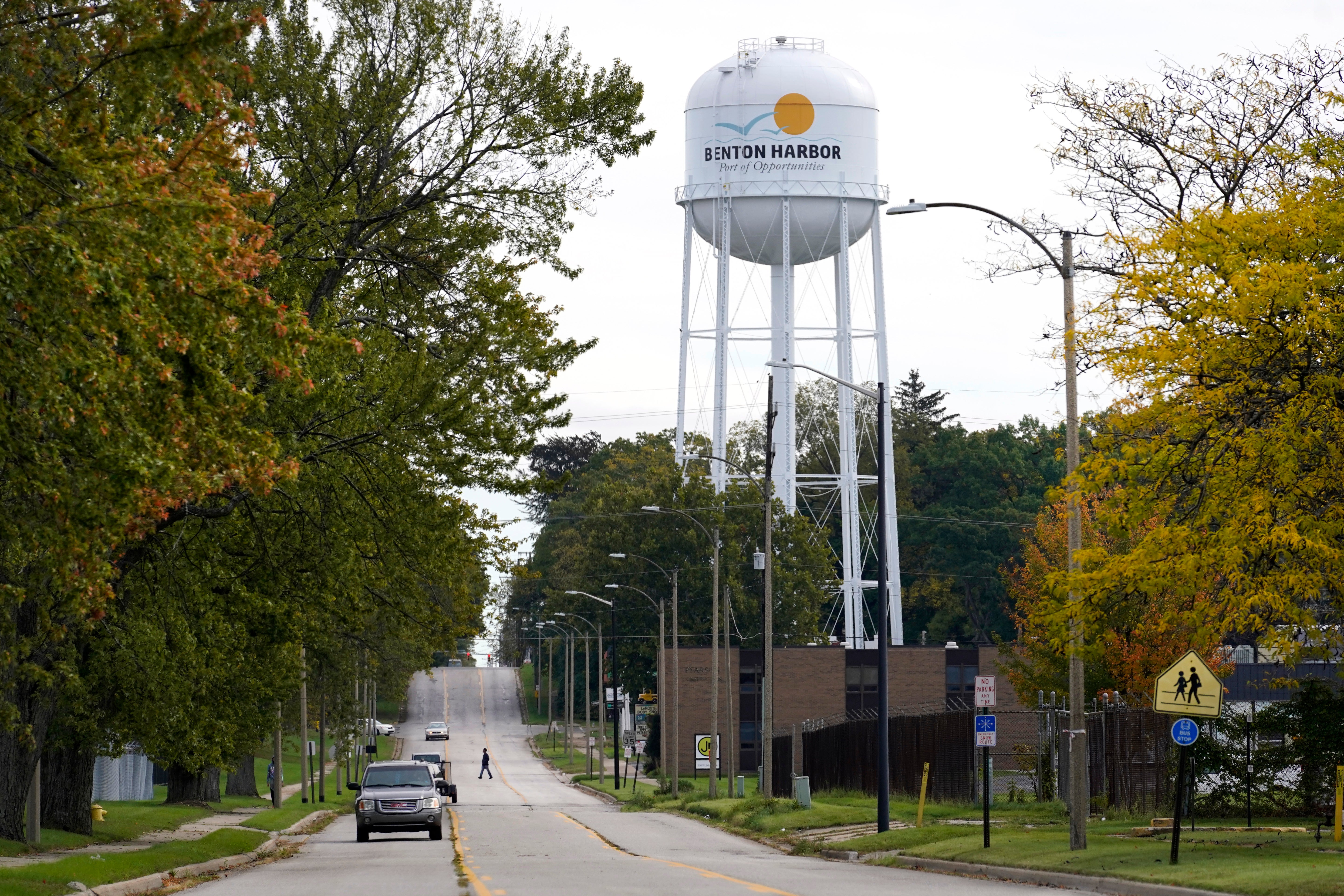EPA staff slow to report health risks from lead-tainted Benton Harbor water, report states
Officials say health risks due to high lead levels in drinking water in a majority Black and impoverished Michigan city were not taken quickly to U.S. Environmental Protection Agency leadership

Health risks due to high lead levels in drinking water in a majority Black and impoverished Michigan city were not taken quickly to U.S. Environmental Protection Agency leadership, according to a report released Thursday.
The EPA Office of Inspector General said staff monitoring the state's response to lead levels and compliance in Benton Harbor failed to “elevate" the issue of health risks to the city's residents, per an EPA policy that encourages staff to do so. The issues met several EPA elevation policy criteria, including the appearance of a substantial threat to public health and that normal enforcement and compliance tools seemed unlikely to succeed in the short term, the report said.
In October 2018, the state notified the Benton Harbor water system it had exceeded 15 parts per billion in water samples — the federal threshold for taking action.
Those levels stayed high. In 2021, activists ramped up pressure for more action, and state leaders responded as the lead issue attracted national attention. State officials promised to rapidly remove the city's lead pipes and instructed residents to switch to bottled water for basic needs like cooking and drinking.
Lead, which can leach from aging pipes into residential drinking water through taps, is a potent toxin that can damage the cardiovascular and reproductive systems. It is particularly harmful to children, causing lower IQ and behavioral problems.
The EPA’s 2016 Policy on Elevation of Critical Public Health Issues followed the lead-contaminated water crisis in Flint, Michigan. Flint, which was under state-appointed managers, used the Flint River for water in 2014 and 2015, but the water wasn’t treated the same as water previously supplied by a Detroit-area provider. As a result, lead leached throughout the pipe system.
Benton Harbor is about 100 miles (160 kilometers) northeast of Chicago. Federal auditors announced an investigation in February 2022 into how the government dealt with lead contamination of Benton Harbor drinking water. The probe followed a petition for federal help from groups that accused local and state governments of dragging their feet.
“Because the elevation policy was not used, the Office of the Administrator’s senior-level team did not have an opportunity to assess and recommend steps for resolving elevated lead levels in the Benton Harbor water system," the report stated.
The EPA has disagreed with a recommendation that it determine how the policy can be more effective but did agree to develop and implement a strategy to help staff understand when and how to use the policy.
Cyndi Roper, senior policy advocate with the Natural Resources Defense Council, called the response in Benton Harbor “another abject failure of the EPA to protect an environmental justice community.”
"The EPA must do better to end the public health disaster linked to lead-contaminated drinking water, starting with issuing and enforcing a new federal lead and copper rule that will finally tackle the lead crisis, so no other community is poisoned by leaded tap water,” Roper said Thursday in a release.
About 87% of Benton Harbor's roughly 9,100 residents are Black. The city’s median household income was about $24,000 in 2021, according to the U.S. Census.
Much of the city's water distribution network is around 100 years old. The city’s water system has added corrosion control chemicals to prevent lead from leaching into the drinking water.
Lead levels finally dropped below the 15 parts per billion action level in December 2021. Millions of dollars in state and federal funds have been used to replace thousands of lead service lines. After about a year — an incredibly fast timeline to replace lead pipes in any city — officials announced nearly all of Benton Harbor's lead pipes had been replaced.
Bookmark popover
Removed from bookmarks